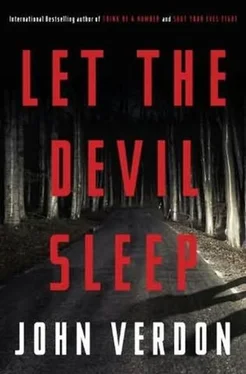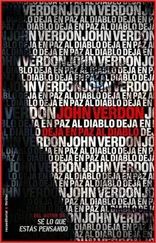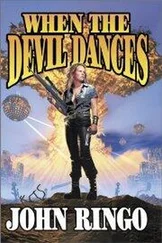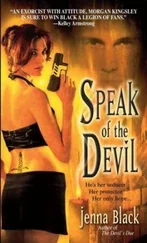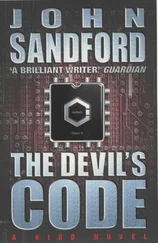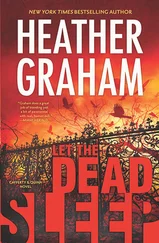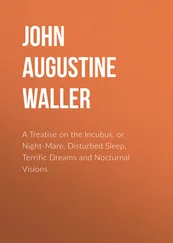“I heard a couple of sounds in the woods behind the barn.”
“What kind of sounds?”
“Maybe small branches breaking? I couldn’t say for sure.”
“Was anyone else out of the house during the two hours preceding the fire?”
“My son came down to the bench for a while. And Ms. Corazon also stepped out for a while, I’m not sure for how long.”
“Where did she go?”
“I don’t know.”
He raised an eyebrow. “You didn’t ask?”
“No.”
“How about your son? Do you know if he went anywhere other than back and forth between the house and the bench?”
“Just to the bench and back to the house.”
“How can you be sure?”
“He had a lit flashlight in his hand.”
“How about your wife?”
“What about her?”
“Did she leave the house at all?”
“Not that I know of.”
“But you’re not sure?”
“Not absolutely sure.”
Kramden nodded slowly, as though these facts were forming some kind of coherent pattern. He ran his fingernail over the tiny black imperfection in the tabletop.
“Did you set the fire?” he asked, still staring at the spot.
Gurney knew that this was one of several standard arson-investigation questions that had to be asked.
“No.”
“Did you cause it to be set by someone else?”
“No.”
“Do you know who did set it?”
“No.”
“Do you know anyone who might have had a reason to set it?”
“No.”
“Do you have any other information at all that might help in the investigation?”
“Not right now.”
Kramden stared at him. “What does that mean?”
“It means that right now I don’t have any other information that could help in the investigation.”
There was the tiniest flash of anger in the man’s suspicious eyes. “Meaning you plan to have some relevant information in the future?”
“Oh, yes, Everett, I will definitely have some relevant information in the future. You can count on it.”
Raising the Stakes
Kramden devoted only about twenty minutes each to his interviews with Madeleine and Kyle but then spent over an hour with Kim.
At that point it was nearly noon. Madeleine offered the man lunch, but he declined with a look that was more sour than gracious. Without explanation he left the house, walked down the pasture slope, and got into his van, which was parked halfway between the pond and the wreckage of the barn.
The morning fog had dissipated, and the day had brightened somewhat under a high overcast. Gurney and Kim were sitting at the table, while Madeleine was washing mushrooms for omelets. Kyle was looking out the kitchen window. “What the hell’s he up to now?”
“Probably checking on the progress of his gas-liquid chromatograph,” said Gurney.
“Or eating his own private sandwich,” said Madeleine with a touch of resentment.
“Once you get a GLC set up,” Gurney continued, “it takes about an hour for it to run an analysis.”
“How much can it tell him?”
“A lot. A GLC can break any accelerant down into its components-the precise amounts of each-which essentially produces a fingerprint of the chemical by type, sometimes even by brand if it’s a distinctive formula. It can be pretty specific.”
“Too bad it can’t be specific about the son of a bitch who set the fire,” said Madeleine, chopping a large mushroom with considerable force, the knife banging against the cutting board.
“Well,” said Kyle, “Investigator Kramden may have a smart machine, but he’s an asshole. Kept asking me about my flashlight, exactly what path I took to and from the house, how long I was down by the pond with Dad. He seemed to be suggesting that maybe I was lying about not knowing who started the fire. Jerk.” He looked over at Kim. “He kept you the longest. What was that all about?”
“He seemed to want to know all about The Orphans of Murder .”
“Your TV thing? Why would he want to know about that?”
She shrugged. “Maybe he thinks the two things are connected?”
“Did he already know about Orphans ?” asked Gurney. “Or did you tell him about it?”
“I told him about it-when he asked how I was connected to you, how I happened to be here.”
“What did you tell him about my role in the project?”
“That you were acting as a technical adviser on issues related to the Good Shepherd case.”
“That’s all?”
“Pretty much.”
“Did you tell him about Robby Meese?”
“Yes, he asked about that.”
“About what?”
“About whether I had any conflicts with anyone.”
“So you told him about the… the peculiar things that have been happening?”
“He was very persistent.”
“And about the staircase? And the whisper?”
“The stairs, yes. The whisper, no. I didn’t personally hear it, so I figured that was up to you.”
“What else?”
“That’s about it. Oh, he wanted to know exactly where I was when I stepped out of the house last night. Did I hear anything, did I see you, see Kyle, see anyone else, stuff like that.”
Gurney felt a slow wave of uneasiness rising in his chest. There was in any crime interview or interrogation a wide spectrum of data that might or might not be disclosed. At one end of the spectrum were irrelevant personal details that no reasonable officer would expect someone to volunteer. At the other end were major facts crucial to understanding the crime, facts whose concealment would constitute obstruction of justice.
In the middle was a gray area subject to debate and rationalization.
The question here was whether the personal conflict in Kim’s life could be viewed, because of the basement incident, as a conflict in Gurney’s life as well. If she reported a potential connection between her sawed step and his burned barn, shouldn’t he have reported it as well?
More to the point, why hadn’t he? Was it simply his ingrained cop inclination to control situations by controlling information?
Or was it the elephant in the room? His too-slow recovery from his injury. His fear that his abilities had been diminished-that he wasn’t as strong, as sharp, as quick as he had once been-that there was a time when he wouldn’t have fallen on his face, wouldn’t have let the whisperer escape.
“You’ll figure it out,” said Madeleine, sliding a cutting board’s worth of chopped mushrooms and onions into a large skillet on the stove.
He realized she’d been watching him and was demonstrating yet again her uncanny ability to read his mind-to see his thoughts and feelings in his eyes as clearly as if he’d spoken them. Earlier in their marriage, he’d found this faculty of hers almost frightening. Now he had come to regard it as one of the most benign and precious realities of their life together.
The skillet began to sizzle, and a pleasant aroma drifted across the room.
“Hey, that reminds me,” said Kyle, looking around. “Dad’s birthday present-he never finished opening it at dinner last night.”
Madeleine pointed to the sideboard. The box, still in its light blue wrapping, lay next to the arrow. Kyle, grinning, retrieved it and placed it on the table in front of his father.
“Well…” said Gurney, vaguely embarrassed. He began removing the paper.
“David, for Godsake,” said Madeleine, “you look like you’re defusing a bomb.”
He laughed nervously, pulled off the remaining paper, and opened the box, which was a matching blue. After unfolding several layers of crinkly white tissue paper, he found a handsome eight-by-ten sterling-silver frame. In the frame was a newspaper clipping, beginning to yellow with age. He stared at it, blinking.
Читать дальше
